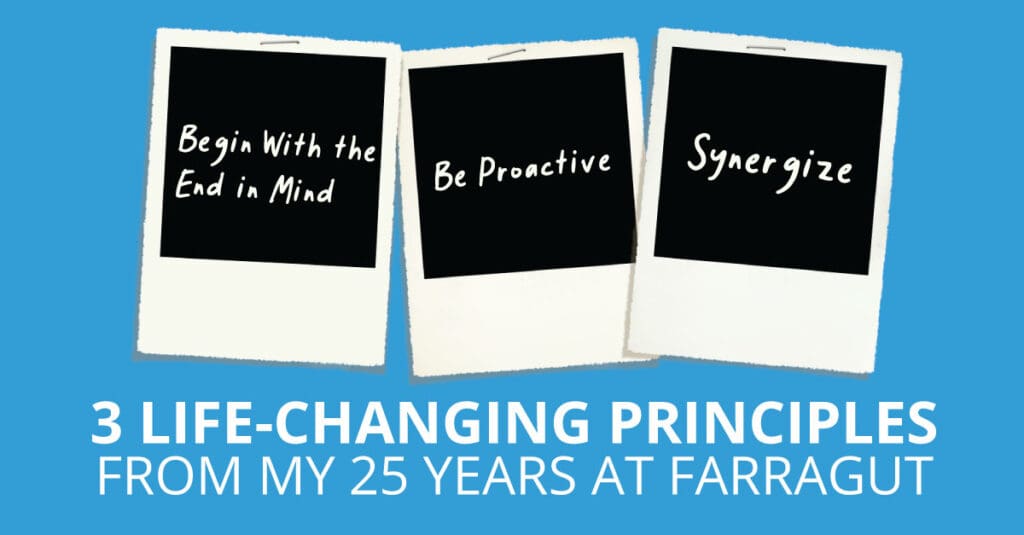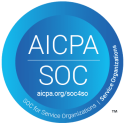For more than a year, in my capacity as VP Local Gov Solutions at Farragut, I’ve been sharing information and advice through blogs that I hope prove useful to our customers and all property tax leaders interested in achieving full potential with digital transformation.
But my history with the company stretches back before blogging was born — I’ve been with Farragut for 25 years now. In that time, I’ve served in many roles, including sales representative, account manager, director of operations, and now vice president and company executive.
Challenged to take on new and different responsibilities in each of these positions, I’ve had unique opportunities for growth and development, opportunities supported by the generous, committed, and capable Farragut community.
As I will be retiring at the end of the year from this incredibly fulfilling full-time career (while continuing part-time as a Farragut trustee), I’d like to speak more personally about my experiences. I hope that doing so may inspire those of you early in your careers to embrace a change in philosophy, as I did, as a step toward greater success.
The Inspiration
A few years into my work at Farragut, I was offered the chance to attend Stephen Covey’s course on The 7 Habits of Highly Effective People. I went in with one mindset — and came out with another. I translated that new mindset into a blueprint for how to immediately approach my career — and eventually approach my life.
Three principles from that course struck me as particularly relevant then and have since been critical to my ability to thrive professionally, as an individual, a team member, and a company contributor. While I can’t speak to the entirety of my experiences in one blog, I can provide examples of how each of these principles changed me for the better.
Begin With the End in Mind
Before the Covey course, I approached my work as a list of tasks. As someone responsible for sales, I was focused on researching prospects, cold calling, emailing potential customers, etc. And I measured my success by ticking off those tasks by, for example, meeting targets for the number of calls I made.
After the Covey course, I realized I needed to go about my work with an eye on a bigger prize — recruiting new customers to realize the full benefits that our solutions offer. Understanding that the actual desired outcome of my work was to grow customer successes (as opposed to meeting contact targets), I changed my whole approach.
My focus became customers, rather than numbers. I spent more time getting to know prospective customers, learning about their needs, and figuring out what Farragut had to offer that could help them reach their goals. Ultimately, building relationships proved far more effective than building contact lists.
The takeaway? At Farragut, growth and the creation of value — for customers, employees, and the company — are the goal, the “end” in terms of this principle. Knowing that, I’ve structured my work to minimize distractions and maximize the time, energy, and attention I devote to doing what it takes to reach that goal.
Be Proactive
Many of us default too easily to reactivity, which can be paralyzing or even destructive. There were times early in my career when I became stuck when something unusually negative or difficult happened — as it does in any organization. At that point it was easier for me to withdraw emotionally, figuring there wasn’t much I could do to change the situation. For example, a customer may have been unhappy with the way a solution was progressing, and we found ourselves at odds about the cause of and cure for the predicament.
The Covey course helped me internalize an alternate approach: proactivity. Rather than worry about everything I couldn’t control in a situation, I focused on what I could control. In essence, I reclaimed some ownership in what was happening.
In dealing with conflict, I accepted I had no control over whether someone chose to agree with me. But I realized I had complete control over what possible solutions I presented — and how I presented them. Working proactively toward win-win outcomes got me further than shutting down and shutting out the possibility of a third (and better) alternative created by working together toward a mutual objective.
The takeaway? Accepting what I can’t control — and acting on what I can — has empowered me to work toward the best possible outcomes, especially in difficult situations. It has also extended my sphere of influence as others recognize I consistently act in good faith to resolve issues fairly and favorably for all involved.
Synergize
As someone who achieved success operating independently in a professional context, I came to this principle quite late in the game. I spent years assessing the risks of working closely with others — the extra time, the potential conflicts, the fear of looking incompetent or losing control — as being too great to take on. One example of this was giving exacting instructions to a colleague as we provided product demonstrations to potential customers, leaving no room for discussion, deliberation, or deviation.
The turning point in this example came thanks to one of my colleague’s courage in confronting me and telling me I was stifling his creatively and effectiveness. Through our discussions it became clear that although I was ultimately accountable for the outcome of these product demonstrations (and therefore needed to “own” them), my colleague had much more to offer that would contribute to their success.
Adopting a more cooperative, collaborative model of interaction leveraged my ability to focus on the longer-term goal of adding new successful customers and his ability to more creatively communicate the suitability of our product to their individual needs. Together, we were much more effective (and successful!) than either of us were on our own.
The takeaway? The saying, “If you want to go fast, go alone. If you want to go far, go together,” sums this one up beautifully. Collaboration, which takes advantage of complementary strengths, is a reasonable and manageable risk that leads to massive rewards.
Not Quite My Ending, But Perhaps Your Beginning?
In summary, I have:
- Had an amazing career with Farragut and benefited enormously from my experiences with colleagues and customers alike.
- Been given opportunities I never imagined — opportunities that allowed me to learn and grow in both educational and real-world ways.
- Reached for my full potential, realized my own success, and contributed to the success of those around me — thanks in large part to the incredible people at Farragut and the environment they’ve created.
But I’m not quite done. I’ll be in my current position through the end of the year — and then, happily, continuing my journey with Farragut in the role of trustee, providing input to our CEO and executives.
I make this transition with appreciation for remaining part of the Farragut family and will be watching eagerly as a new generation of adept, dedicated leaders take the reins.
Are you interested in the challenges and opportunities Farragut provides to learn and grow, to reach your full potential? We’d love for you to join us!





